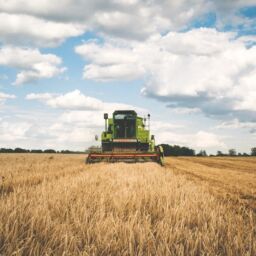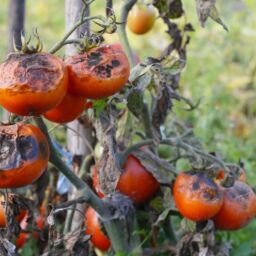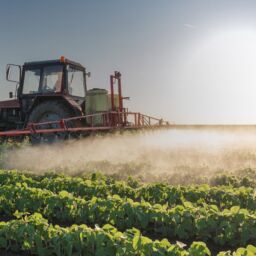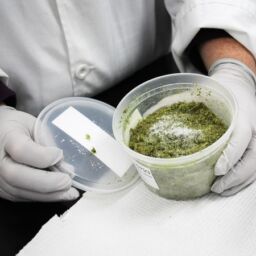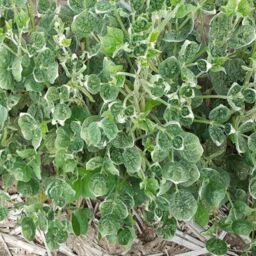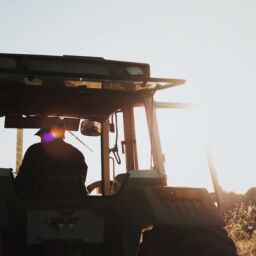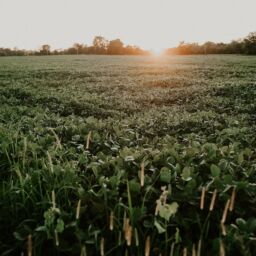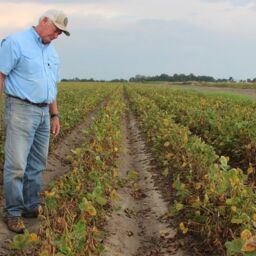Dicamba Damage Lawsuits | Dicamba Damage Lawyers
Attorney Paul Lesko of Peiffer Wolf Carr & Kane continues to push forward on the fight against the manufacturers of the herbicide dicamba. Fighting on behalf of farmers across the country, the complaints allege that Monsanto, BASF, and DuPont sold a defective product to farmers and growers.
Dicamba Drift Lawyer, Paul Lesko, of Peiffer Wolf Carr & Kane says new dicamba formulations do not work as claimed by BASF and Monsanto:
We’re bringing claims of product liability because farmers are in a quandary. They want to plant seeds of their choice, but due to damage potential, have to consider buying dicamba-tolerant soybeans from a defensive position. We also have anti-trust issues. As discovery is ongoing, we believe the evidence will show Monsanto and BASF knew more dicamba damage would lead to increased sales.
The growers, farmers, and landowners are fighting to secure a settlement to cover millions of dollars of direct plant and crop losses, as well as the cost of protecting their crops, plants, and land from unintended dicamba drift damage.
What is Dicamba? | Dicamba Crop & Plant Damage
Dicamba is a powerful herbicide that was previously not permitted for direct application on crops because of its toxicity and tendency to move off-site or drift and potentially harm neighboring farms, crops, and plants. However, farmers have sprayed the herbicide Roundup for so long that some weeds are now resistant to glyphosate, its primary active chemical ingredient. Since being approved for direct application, farmers have turned to dicamba to kill these new “super weeds,” which now affect more than two-thirds of U.S. farm acres (61 million acres).
In order to combat the problem of Roundup-resistant “super weeds,” manufacturers developed new strains of soybeans and cotton that would be resistant to dicamba. However, the EPA had serious concerns about the proposed new uses for dicamba, which had long been known to be highly volatile and uncontrollable. The EPA delayed approval of the new dicamba formulations for several years, due to its concerns about the chemical’s propensity for off-site movement and the significant harm that it might pose to farmers and neighboring landowners.
Dicamba Used for 2017 Growing Season | Dicamba Lawsuits
It approved three new formulations of dicamba for the 2017 growing season, which were supposedly less likely to be harmful than prior versions of dicamba:
- XtendiMax by Monsanto
- Engenia by BASF
- Fexapan by Dupont
However, these dicamba formulations were introduced to the market without independent rigorous testing. “As a result, millions of acres of farmland have been damaged in a real life science experiment conducted by Monsanto and the other manufacturers of dicamba at the farmers’ expense,” PRW attorney Paul Lesko stated.
Dicamba was approved for over-the-top application in November 2016; this resulted in a marked increase in dicamba utilization, leading to estimated damages of millions of acres of non-target plants and crops.
Dicamba Lawsuit Updates | Dicamba Crop Damage Lawsuits
Multiple lawsuits have been filed in federal district courts across multiple states. As reported by Tiffany Stecker of Bloomberg BNA on December 29, 2017,
The attorneys for the growers and the manufacturers will meet in Miami Jan. 25 to argue before the U.S. Judicial Panel on Multidistrict Litigation (JPML) over whether the cases should be consolidated into a single court—and if so, which court should hear the arguments.
The panel of judges is expected to make a decision in early February. They will determine whether a single judge should oversee the pretrial process of discovery, in which attorneys obtain documents, depositions, and other evidence to bolster their case.
“Nine of the 11 cases are before the JPML, though the two other cases may eventually be considered,” said Paul Lesko, an attorney with Peiffer Wolf Carr & Kane in St. Louis. “Bringing the cases to a single courtroom would make for a more efficient process. There’s so much overlap; you need to get these in front of the same judge,” he told Stecker of Bloomberg BNA.
Consolidating the cases also would avoid the possibility that judges in different courts issue contradictory rulings on the same motions. Right now, there is a chance of inconsistent orders. Multiple orders could be a burden to the legal system given the increased probability that inconsistent orders would be appealed,” said Paul Lesko of Peiffer Wolf Carr & Kane.
In the Bloomberg BNA interview, Lesko further explained that certain courts have experience in hearing “agricultural biotechnology cases.” Lesko pointed to the recent experience that the Eastern District of Missouri had in overseeing the class action lawsuit against Bayer, in which “rice farmers alleged the company negligently contaminated commercial rice supplies with a type of genetically engineered rice.”
A jury in the District of Kansas federal court ordered a $218 million settlement in July between Syngenta AG and growers whose biotech corn could not be sold in China, which restricts such products.
Dicamba’s manufacturers oppose the consolidation of the cases.
States Take Stance Against Dicamba | Dicamba Lawsuits
As reported by Bloomberg, “In addition to the legal action, at least five states—Arkansas, Minnesota, Missouri, North Dakota and Tennessee—have proposed or implemented dicamba restrictions for 2018 to control the number of crop injury investigations.”
FREE Consultation | Farmers & Growers With Crop Or Plant Damage
Dicamba Drift Lawyers at Peiffer Wolf Carr & Kane and Arkansas attorneys Michael Smith and Paul James are fighting on behalf of farmers and landowners to seek maximum compensation for the damages suffered due to Dicamba. If you suspect that your crops or plants have been damaged by dicamba, contact Peiffer Wolf Carr & Kane by filling out a Contact Form or by calling 314-833-4826 for a FREE Consultation.
Also, you can reach Paul Lesko directly at 314-833-4826 or at [email protected].
About Peiffer Wolf Carr & Kane Abdullah Carr & Kane, APLC
Peiffer Wolf Carr & Kane is a nationwide litigation law firm that represents individuals and entities that have been the victims of negligence, fraud or the misconduct of powerful interests. We are smart, experienced, and dedicated professionals who work tirelessly for our clients and take pride in the pursuit of justice on their behalf. Too often the powerful interests in our society run over the rights of ordinary people. We do our best to restore that balance.


